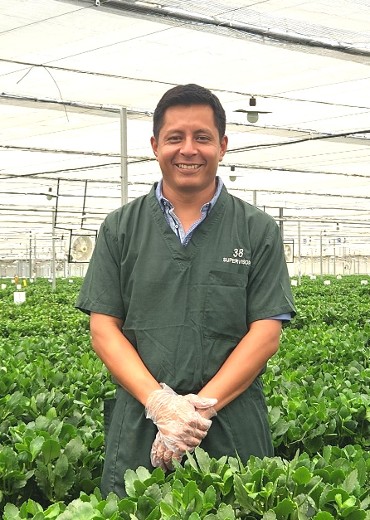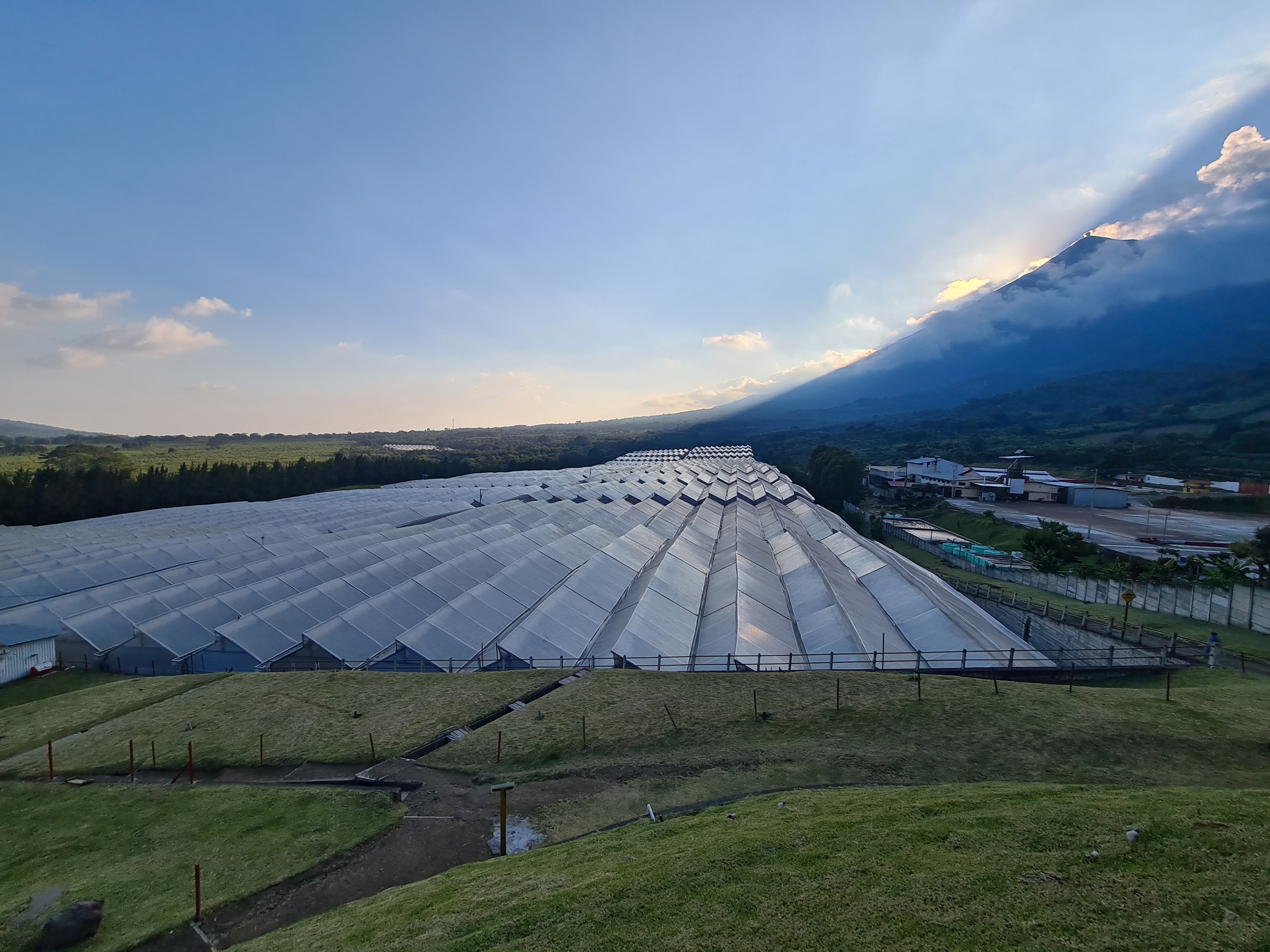Learn about the eco-friendly power of orange oil in crop protection at Dümmen Orange. We’ve reduced chemical pesticide usage by 80% on our farm in Guatemala.

Growers across the globe are constantly seeking sustainable solutions to protect their crops while minimizing environmental impact.
Tackling chemical pesticide use
The predominant use of chemical pesticides globally poses significant environmental risks and has prompted our sector to explore safer alternatives. In fact, our farm in Guatemala is no stranger to searching for eco-friendly methods to safeguard plants from pests and diseases.
The way forward
Orange oil was recommended to our employees in Guatemala by colleagues at other Dümmen Orange farms as a possible solution and a natural alternative to chemical pesticides. This oil helps combat fungal infections and pest infestations while minimizing ecological harm.
Derived from orange peels through a cold press method, the oil is a contact biopesticide that effectively targets specific crops without harming beneficial organisms. Its organic composition and compatibility with Integrated Pest Management (IPM) strategies make it a sustainable choice for growers worldwide.
Below: propagation farm in Guatemala

80% decrease in chemical pesticide usage in Guatemala
After various trials with promising findings, our farm in Guatemala adopted orange oil. This led to the farm witnessing substantial pesticide usage reductions — an impressive 80% decrease in chemical application.
Moreover, the oil’s minimal impact on employee health and the environment further solidifies its status as a sustainable option when it comes to crop protection.